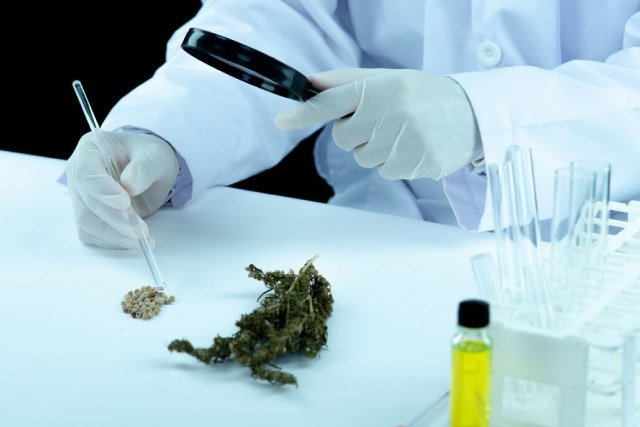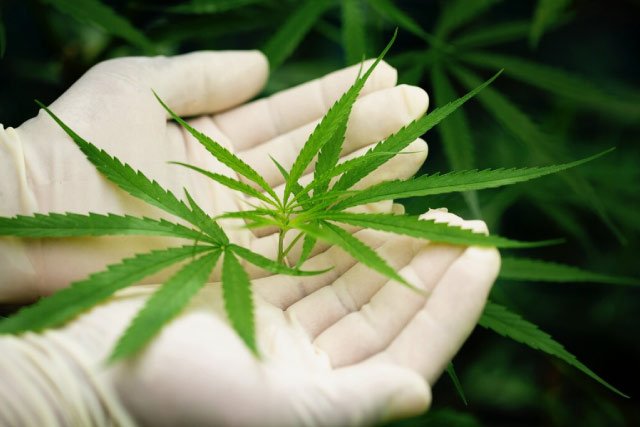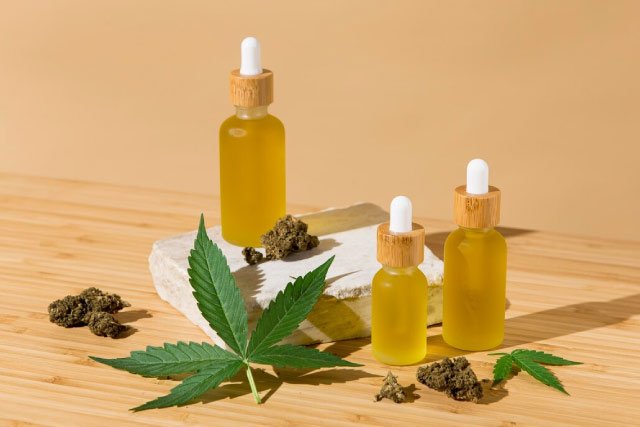The world of Delta-9 THC is a nuanced one, with its legality varying across different jurisdictions. In the heart of the South, Texas stands as a unique battleground where state regulations sometimes clash with federal laws. Let’s delve into the intricacies of Delta-9 THC in Texas State, exploring its legal status, societal impacts, and the challenges faced by both consumers and law enforcement.
Delta-9 THC, short for tetrahydrocannabinol, is a psychoactive compound found in cannabis plants. Known for its euphoric effects, it’s a substance that has long been a topic of legal debate. Federally, Delta-9 THC falls under the controlled substances list, but how does Texas navigate these waters?
1. Understanding Delta-9 THC

Delta-9 THC is a specific type of THC found in cannabis that is responsible for its psychoactive effects. Unlike its cousin CBD (cannabidiol), Delta-9 THC is known for inducing a ‘high’ when consumed. On a federal level, the Controlled Substances Act categorizes Delta-9 THC as a Schedule I substance, indicating a high potential for abuse and lack of accepted medical use. This classification sets the stage for a complex legal scenario.
2. Texas Legislation on Delta-9 THC

Texas, historically conservative on cannabis-related matters, has changed its approach. The journey involves understanding the historical context and the current legal status of Delta-9 THC in the state.
2.2. Historical Context
Texas has traditionally maintained strict regulations on THC, with cannabis being illegal for both recreational and medicinal uses. The historical stigma associated with marijuana has played a significant role in shaping the state’s approach to THC.
2.3. Current Legal Status
As of 2024, Texas maintains a strict stance on Delta-9 THC. While some states have embraced a more lenient approach, Texas adheres to federal regulations, considering Delta-9 THC illegal for recreational use. Medicinal use is limited, with stringent conditions and a narrow list of qualifying medical conditions.
3. Differences Between Federal and State Regulations

Navigating the world of Delta-9 THC becomes particularly challenging due to the differences between federal and state regulations. The conflict between these laws creates a complex environment with implications for users and businesses.
3.1. Conflicting Laws and Implications
The federal illegality of Delta-9 THC clashes with the evolving attitudes in some states, creating confusion for users and businesses. While federal law criminalizes Delta-9 THC, some states, including Texas, have started to explore alternative approaches.
3.2. Impact on Users and Businesses
The conflicting laws directly impact users and businesses involved in the Delta-9 THC market. Users may find themselves at odds with state laws despite potential federal leniency, while companies face the challenge of complying with ever-shifting regulations.
4. Recent Developments in Texas THC Laws

The legal landscape surrounding Delta-9 THC is dynamic, with changes and updates occurring regularly. Staying informed about recent developments is crucial for advocates and those navigating the market.
4.1. Legislative Updates
Recent legislative updates in Texas indicate a shifting perspective on Delta-9 THC. While federal regulations remain stringent, Texas has seen discussions around potential amendments to its THC laws. Understanding these updates provides insight into the direction the state is heading.
4.2. Public Reactions and Debates
Public reactions to changes in THC laws are diverse. Some welcome the potential for relaxed regulations, while others express concerns about the impact on public health and safety. Debates highlight the need for a balanced, informed approach to legislation.
5. Challenges Faced by Law Enforcement

Enforcing Delta-9 THC regulations poses a unique set of challenges for law enforcement. The job isn’t easy, from difficulties in detection to combating illicit practices. What strategies are in place, and how effective are they?
5.1. Enforcement Difficulties
The nature of Delta-9 THC, often challenging to distinguish from legal cannabinoids, creates difficulties for law enforcement. Detecting and prosecuting cases involving Delta-9 THC require advanced testing methods and trained personnel.
5.2. Strategies to Combat Challenges
Law enforcement agencies in Texas continually adapt strategies to combat the challenges posed by Delta-9 THC. Training programs, collaboration with testing facilities, and public awareness campaigns play a role in addressing these difficulties.
6. Health and Societal Impacts

Beyond the legal sphere, Delta-9 THC has health and societal implications. Research on its effects is ongoing, and understanding these impacts is vital for policymakers and the general public.
6.1. Research on Delta-9 THC Effects
Scientific research on the effects of Delta-9 THC provides valuable insights into its impact on mental and physical health. Studies explore potential benefits and risks, influencing the ongoing debate on its legality.
6.2. Societal Perceptions and Consequences
Societal perceptions of Delta-9 THC contribute to the ongoing discourse. The stigma surrounding THC influences public opinion, affecting legislative decisions and the implementation of regulations. Understanding these perceptions is crucial for developing effective policies.
7. CBD and Delta-9 THC Distinctions

Navigating the world of cannabinoids isn’t just about Delta-9 THC. CBD, or cannabidiol, shares the stage. We’ll explore the legal variations, market trends, and how consumers can make informed choices.
7.1. Legal Variations
CBD, unlike Delta-9 THC, is legal on a federal level when derived from hemp. Texas follows this federal legality, allowing the sale and use of CBD products with minimal THC content. Understanding these legal distinctions helps consumers make informed choices.
7.2. Market Trends and Consumer Awareness
The growing popularity of CBD products introduces a new dimension to the cannabis market. Consumers are increasingly aware of the distinctions between CBD and Delta-9 THC, influencing their preferences and choices. This trend shapes the market landscape in Texas.
8. Navigating the Delta-9 THC Market in Texas

For consumers and businesses alike, navigating the Delta-9 THC market requires a keen understanding of the legal landscape. What are the safe practices, and how can companies ensure compliance with ever-changing regulations?
8.1. Safe Practices for Consumers
Consumers in Texas seeking to explore Delta-9 THC products must prioritize safety. Verifying product sources, understanding THC content, and adhering to state regulations contribute to responsible and safe consumption.
8.2. Business Regulations and Compliance
Businesses operating in the Delta-9 THC market face the challenge of adhering to both federal and state regulations. Staying informed, implementing robust testing procedures, and actively participating in industry discussions contribute to regulatory compliance.
9. Public Opinion and Advocacy

Public opinion on Delta-9 THC is diverse, ranging from staunch support to vigorous opposition. Advocacy groups play a crucial role in shaping these opinions. We’ll delve into the dynamics of support and opposition.
9.1. Support and Opposition to Delta-9 THC
Public support for Delta-9 THC legalization often centers around personal freedom, medicinal benefits, and economic opportunities. Opposition highlights concerns about public health, safety, and potential abuse. Balancing these perspectives is crucial for effective policymaking.
9.2. Advocacy Groups and Their Roles
Advocacy groups in Texas actively participate in shaping Delta-9 THC legislation. From grassroots movements to professional organizations, these groups are vital in influencing public opinion and engaging with policymakers.
10. Case Studies: Successful Businesses in the THC Market

Despite the legal intricacies, some businesses have found success in the THC market. We’ll explore case studies, shedding light on compliance strategies, success stories, and the challenges they faced.
10.1. Compliance Strategies
Successful businesses in the Texas THC market prioritize compliance with regulations. From transparent labeling to rigorous testing procedures, these strategies ensure adherence to the law and build trust with consumers.
10.2. Success Stories and Challenges Faced
The journey of successful businesses in the THC market is a testament to the evolving nature of regulations. While some have thrived, challenges such as regulatory uncertainty and changing public perceptions remain. Understanding these stories provides valuable insights for aspiring entrepreneurs.
11. Future Trends and Predictions

What does the future hold for Delta-9 THC in Texas? Speculations abound, and potential legislative changes may reshape the landscape. We’ll delve into predictions and the factors influencing them.
11.1. Speculations on Delta-9 THC in Texas
As societal attitudes towards cannabis evolve, speculations about the future of Delta-9 THC legal in Texas include potential relaxation of regulations, expanded medicinal use, and increased market opportunities. However, uncertainties persist, requiring stakeholders to stay vigilant.
11.2. Potential Legislative Changes
Anticipating potential legislative changes involves considering public opinion, economic factors, and advancements in cannabis research. Policymakers in Texas may revisit existing regulations to align with changing perspectives and new scientific findings.
12. Impact on Tourism and Economy

Beyond the legal and social dimensions, Delta-9 THC in Texas has an impact on tourism and the economy. Understanding these influences is crucial for policymakers and businesses alike.
12.1. Influence on Tourism
States with more lenient cannabis regulations often attract cannabis tourism. Should regulations evolve, the potential for increased tourism in Texas presents economic opportunities and challenges that policymakers must consider.
12.2. Economic Contributions and Concerns
The economic contributions of a thriving Delta-9 THC market include job creation, tax revenue, and business growth. However, concerns related to public health, safety, and potential illicit activities also warrant careful consideration in shaping future policies.
Conclusion
In summary, the complex web of Delta-9 THC legal in Texas demands attention and understanding. Navigating this landscape requires balancing individual rights, societal well-being, and economic considerations. As the Lone Star State grapples with evolving attitudes, responsible use and adherence to regulations remain paramount.
FAQs
The legality of Delta-9 THC in Texas is subject to both state and federal regulations. Understanding the nuances is crucial.
Businesses in the Texas THC market encounter challenges related to compliance, changing regulations, and societal perceptions.
Public opinion plays a significant role in shaping Delta-9 THC laws, with both support and opposition influencing legislative decisions.
Yes, various educational initiatives aim to provide resources and information regarding Delta-9 THC in Texas.
Consumers can navigate the Delta-9 THC market responsibly by staying informed, following regulations, and making educated choices.




